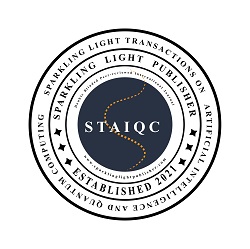Machine Learning Based Approach For Forecasting Municipality Waste Generation
DOI:
https://doi.org/10.55011/STAIQC.2025.5202Keywords:
MSW, Waste Forecasting, Time- Series Analysis, Machine Learning, Facebook Prophet, Flask Web Application, Mangaluru City, Sustainable Waste ManagementAbstract
MSW management remains one of the most pressing challenges in rapidly expanding urban centers, and Mangaluru is no exception. Anticipating future waste generation allows city authorities to plan efficient systems for collection, treat- ment, and disposal, thereby reducing environmental impacts and protecting public health. This study focuses on predicting municipal solid waste production in the Mangaluru region using historical datasets across categories such as wet waste, dry waste, silt, sanitary waste, and mixed waste. The collected data was carefully preprocessed and examined to uncover seasonal variations and temporal patterns. A data-driven forecasting framework was developed using the Prophet time-series model, which provides reliable short- to medium-term predictions with confidence intervals. To improve usability, the forecasting system was deployed as a web application built on the Flask framework, incorporating secure authentication and role-based access con- trol. Users can select a target year and generate category-wise predictions, thereby supporting evidence-based decision-making. The findings demonstrate the model’s ability to reflect yearly fluctuations specific to Mangaluru and provide critical knowledge to guide sustainable waste management initiatives. Moreover, the framework can be extended by integrating external drivers such as demographic increase, patterns of urban expansion, and climatic factors like rainfall to further enhance accuracy. Overall, the project highlights the promise of advanced computational learning methods in strengthening urban sustainability and assisting Mangaluru’s transition toward smarter MSw practices.


